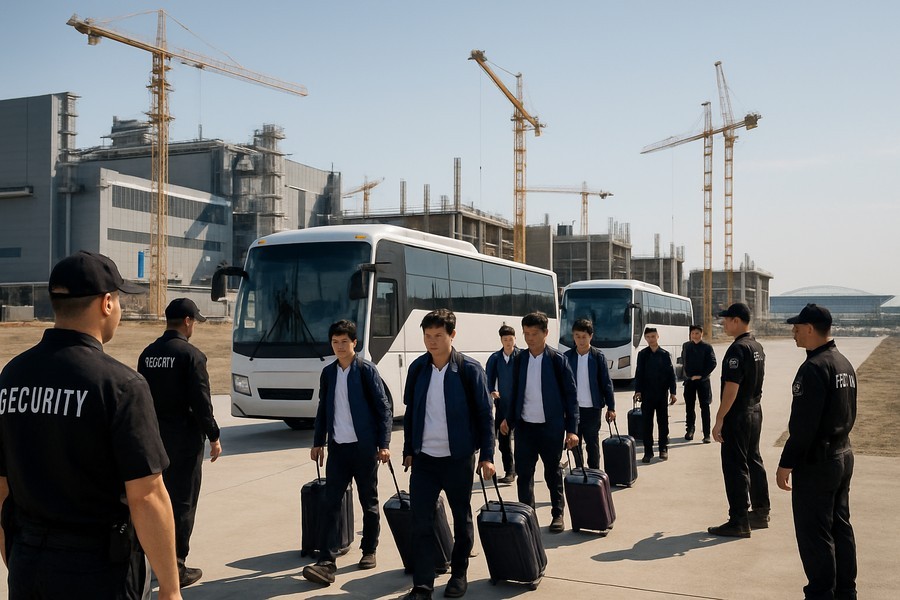
Detained Korean Workers Released From Georgia Site
The President of South Korea has expressed concern that the current visa system in the United States might discourage Korean companies from investing further in the country. This comment follows the recent detainment and subsequent release of several hundred workers from a factory in Georgia.
President Calls for Visa System Improvement
President Lee Jae Myung voiced his concerns during a press briefing, in the aftermath of an immigration operation that led to the apprehension of over 300 Korean employees at a battery plant under construction in Georgia. The factory is part of a large automobile manufacturing complex, located west of Savannah.
Detainees Get Ready to Return Home
Following the incident, it was confirmed that the 330 detainees, which included 316 Koreans, were released and are being transported to an airport in Atlanta. From there, they will be flown back to South Korea. The group also includes 10 Chinese nationals, three Japanese nationals, and an Indonesian.
South Korea Reacts to the Incident
The incident, which involved workers being handcuffed and escorted away, created an uproar and feelings of betrayal in South Korea. This came as a surprise, especially as it occurred shortly after a meeting between the US President and Lee, and a few weeks after an agreement was reached that exempted South Korea from the highest US tariffs. In return, South Korea had committed to investing $350 billion in the US, amidst a dwindling job market at home.
Politicians from both liberal and conservative parties in Korea criticized the detainment, labeling it as harsh and outrageous. A prominent Korean newspaper likened the operation to a 'rabbit hunt' carried out by US immigration authorities, in an attempt to achieve an alleged goal of 3,000 arrests per day.
Concerns Over Future Investments
During the press conference, President Lee hinted that Korean companies might think twice before making direct investments in the US under the current visa system. He stated that the opportunity for Korean companies to send skilled workers to industrial sites in the US would significantly affect future investments.
“It’s not as if these are long-term workers. When you construct a factory or install equipment, you need technicians. But the US doesn’t have that workforce and yet they won’t issue visas to let our people stay and do the work,” he said. “If that’s not possible, then setting up a local factory in the United States will either come with serious disadvantages or become very hard for our companies. They will wonder whether they should even do it,” Lee added.
Immigration Practices: A Cultural Difference?
Lee attributed the incident to a “cultural difference” between the two countries in handling immigration issues. He contrasted the situation with South Korea's leniency towards Americans who teach English on tourist visas.
“But the United States clearly doesn’t see things that way. On top of that, US immigration authorities pledge to strictly forbid illegal immigration and employment and carry out deportations in various aggressive ways, and our people happened to be caught in one of those cases,” he added.
Efforts to Resolve Visa Issues
Following a meeting between the South Korean Foreign Minister and the US Secretary of State, it was declared that the US has agreed to allow the detained workers to return to complete their work at the site. The two countries also agreed to establish a joint working group to discuss the creation of a new visa category, to facilitate the movement of South Korean staff to work in the United States.
If the visa issue is not resolved, more South Korean workers in the US could be susceptible to similar crackdowns in the future. The battery plant in Georgia is one of more than 20 major industrial sites currently being built by South Korean companies in the US, involving projects across several states.
Without an update in US visa policies, Korean companies may no longer be able to send their workers to the US. This could delay expansion of facilities and other production activities, negatively impacting the US economy, according to Min Jeonghun, a professor at South Korea’s National Diplomatic Academy.
